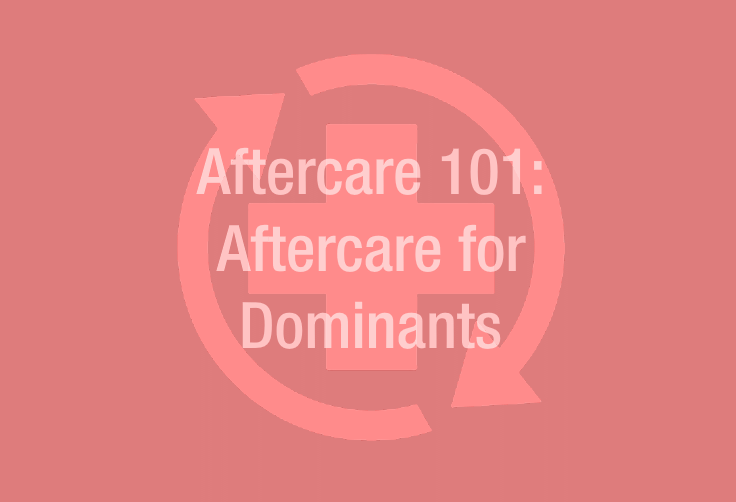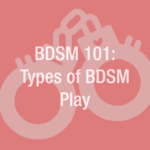In the world of BDSM, Dominants are often seen as the unshakable anchor—the ones who lead, guide, and hold space for their submissive. But even the strongest hands can tremble after the intensity of a scene. That’s why Dominant aftercare is not just helpful—it’s essential.
While subs may soar into subspace, Doms often dive deep into control, precision, performance, and responsibility. And when the scene ends, they can experience a sharp emotional shift, often called Domdrop. Yet many Dominants feel pressure to “stay strong,” even when they’re quietly unraveling.
Let’s change that narrative.
🧠 Why Do Dominants Need Aftercare?
Being a Dominant doesn’t mean being immune to emotional intensity. In fact, Dominants often carry just as much—if not more—mental and emotional labor during a scene.
They are:
- Reading body language and emotional cues
- Tracking limits and safe words
- Balancing intensity and pleasure
- Managing responsibility and consent
That’s a lot of cognitive bandwidth. And once it’s over? The release can leave them feeling drained, vulnerable, or even disconnected.
Some Doms experience:
- Exhaustion
- Self-doubt (“Did I push too far?”)
- Emotional withdrawal
- Loneliness or guilt
- Anxiety about their partner’s well-being
This is where Dominant aftercare comes in—not as indulgence, but as replenishment.
💌 What Does Aftercare for Dominants Look Like?
There’s no one-size-fits-all approach, but here are some ways Dominants can receive the care they need:
1. Verbal Reassurance
- Subs can check in too. A simple “You did amazing” or “I felt so safe with you” can ease the Dominant’s internal critic.
- Sharing gratitude post-scene helps reinforce positive feedback loops for both partners.
2. Physical Comfort
- Hugs, cuddles, resting together—yes, Doms like to be held too.
- A warm blanket, a massage, shared silence—these can go a long way.
3. Food, Water, and Rest
- Dominants expend a surprising amount of energy. Hydration and nourishment are part of aftercare, not an afterthought.
- Encourage rest or quiet downtime.
4. Emotional Processing
- Journaling, voice notes, or even a post-scene debrief with their submissive can help.
- For partnered Doms: have a space where they can express any lingering emotions without judgment.
5. Solo Care Rituals
- Light a candle, take a shower, listen to calming music—whatever centers the Dominant.
- These rituals affirm that they are not just givers of care, but worthy receivers of it, too.
💬 Communication is Key
Before a scene, talk about aftercare preferences—for both Dom and sub. Many subs are happy to provide aftercare in return (or at least know when it’s needed). Let Dominants ask for what they need, too.
This also normalizes mutual vulnerability, which strengthens the connection beyond power dynamics.
🌑 Understanding Domdrop
Just like subdrop, Domdrop can happen hours or days later. Signs may include:
- Feelings of guilt or shame
- Emotional withdrawal or irritability
- Anxiety over whether the sub is truly okay
- Physical fatigue or brain fog
Checking in with a submissive, receiving reassurance, or simply talking with other kink-aware folks can help counteract this.
Remember: dominance does not mean emotional detachment.
🫂 Partners Can Reciprocate
If you’re the partner of a Dominant, here’s how you can support their aftercare:
- Ask: “What would help you feel grounded?”
- Offer praise and appreciation
- Let them know they are safe, valued, and enough
- Give them space if they need it—but don’t disappear without checking in
Aftercare is not about roles. It’s about humanity, and every human needs care.
🖤 Final Thoughts
Dominants carry so much—not just power, but intention, control, care, and emotional gravity. Aftercare is their space to lay it all down. To breathe. To be held. To be seen not as a role, but as a whole person.
Power exchange doesn’t end when the restraints come off. It continues in the quiet aftermath, in the space where we tend to each other’s hearts.
Let Dominants feel cared for. Let them be soft. Let them know: you don’t have to carry it all alone.



